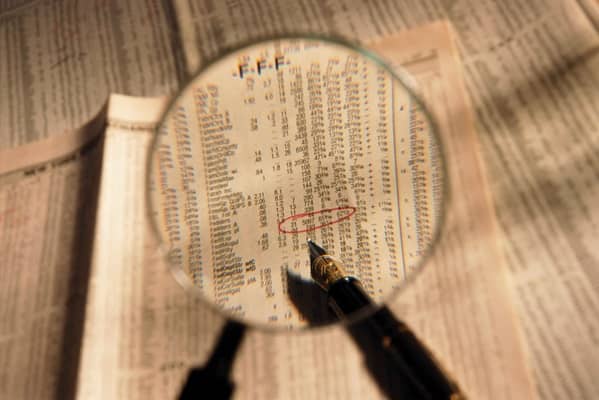Horoscope
Stop press: it’s the very last Evening Standard in London today. And that tells us a lot about Britain in 2024 | James Hanning

Local daily to close.” Ultimately, that is the truth. From today, London’s Evening Standard is indeed ceasing to appear every weekday, as it has for almost 200 years. Yet you don’t have to have worked there for more than 15 years, as I did, to regard it as so much more than just a local rag.
It will live as a website, with a once a week print edition, the London Standard. But it’s certainly a moment. The reach of the Standard as we have known it was huge, if implicit. Though its print edition was largely restricted to the capital, it used to be referred to, without irony, as “the influential London Evening Standard”. How long ago that seems.
But it was. In the 1960s, it was “the serious one” of the two London papers, the Evening News being a bit racier and more poppy. London was an important place, and the Standard was unashamed to be the stodgier title, being represented by grownup writers abroad such as Jeremy Campbell, Patrick Marnham, Sam White and Christopher Hitchens.
The two papers were merged in 1980, after which, apart from a brief interregnum while a tiresome, though admirable, competitor was seen off, the Standard had the capital’s commuter market to itself. The paper tried to be all things to all people, and made not a bad job of it.
The paper that I joined in 1989 was an extraordinary amalgam of local news (much of it bashing “loony left” councils and fighting wars that Thatcher had long since won), showbiz, arts, sport, cartoon strips, gossip, opinion, campaigns and indispensable business and political coverage.
It was run by journalists – a mixture of the shrewd and battle-hardened and the young and keen to learn – who could cope with anything that “events” threw at them. One of the first calls I made on the Standard Diary was to Carol Thatcher. I broke the news to her that her mother had just resigned.
The paper knew it needed to tick a lot of boxes. Its ABC readership was high enough to have the advertisers drooling, but it needed a mass appeal, too. Not every page was for everyone, but it spoke for London, and by and large it did not abuse its monopoly.
Often the Standard really did provide the first draft of history. If it thought something important, rightly or wrongly, other papers would follow. Sometimes it broke big stories, and not just because it had no print competition. There was plenty of scope for robust reporting on local government and transport, and latterly the mayoralty (where its record is less impressive).
On the morning the Labour leader John Smith had a heart attack, the nation’s reporters converged outside Barts hospital in London, waiting for news. Then the Standard van arrived with the first edition: “John Smith dead”. (It is sometimes claimed that a quick-turnaround profile of Tony Blair that appeared in later editions that day was influential in enabling Blair to succeed Smith, with Gordon Brown having previously seemed the likelier successor).
And the Standard did plenty of following. Its first edition was a beneficiary of an age of intense competition between the daily tabloids, cherrypicking the overnight exclusives of others and nudging the story forward. It was, therefore, the first of the aggregators that now proliferate online, hoovering up countless red-top scandals about the then Prince Charles’s rebirth as a tampon, Diana’s latest crush and any number of collapsing marriages.
Londoners who didn’t buy the Sun needed to know what was going on. Pre-internet, the BBC wasn’t going to give us the juiciest bits. One reporter recalls being made to rewrite a story about Ulrika Jonsson and Sven-Göran Eriksson having an affair, which he didn’t believe. The story turned out to be true.
Meanwhile, the quality of the serious parts of the paper – the politics, the business coverage and the opinion pages – made its midday (and later) edition an essential update on what had appeared that morning. Politicians wanted our good opinion, to write for us, to have lunch with us. We seemed to know what was going on, were able to make the right calls and had a mild bearing on which way stories ran.
Sure, we got used, such as when, in 2002, the paper carried the headline “45 minutes from attack”, to alert readers to Tony Blair’s belief that Iraq might hit British targets with weapons of mass destruction. Or when Peter Mandelson told us the secret £373,000 he had borrowed from a friend was simply “family money”.
A paper that produces five editions a day at speed is never going to be flawless, and we all have our nightmare memories, but it was an exhilarating ride for those who worked there.
By the early 2000s, the internet and smartphones were coming over the horizon. Advertising revenues were falling and the paper lost its political sureness of touch. Its catholic ethos and cosmopolitan sympathies were replaced by a more Stakhanovite rigour from the owners, the Daily Mail, on the floor above. It was, as one reporter remarked, “as if the Daleks had learned to use the stairs”.
A series of bad decisions hastened the decline that new technology had made inevitable. The multiplication of news sources gave commuters more freedom, luring them from the Standard’s essentially patrician, curated, one-stop shop. And where previously the paper could amaze with its speed off the mark, smartphones now made each edition obsolete with the print barely dry. Going free provided some respite, but Covid was the real killer. It got thinner and thinner and then, it was reported, its Saudi shareholder demanded its closure as a daily.
The web indulges everyone. They don’t need to buy a paper and skip the pages they don’t like. If they don’t like grazing, they can go straight to the horoscope, or whatever. That atomisation may be a good thing but, just as we don’t all watch the same TV any more, it does mean we’re all getting further and further apart.
Whether you liked it or not, the Standard, like the church, the pub and the library, connoted community. The new weekly version will be a London version of the New Yorker. It has illustrious shoes to fill.
-
James Hanning is a former opinion editor of the Evening Standard, an ex deputy editor of the Independent on Sunday and author of The News Machine, about the phone hacking at the News of the World










